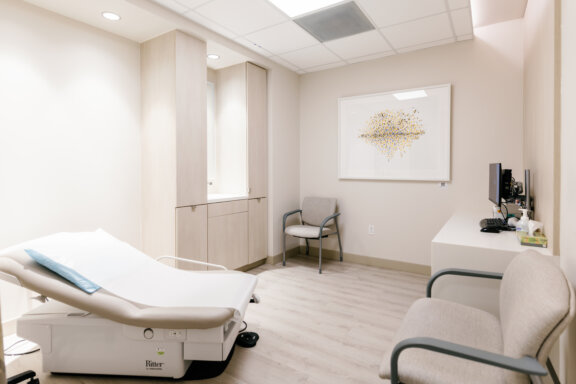Ochsner Health is the leading nonprofit healthcare provider in the Gulf South. Ochsner inspires healthier lives and stronger communities through our mission to serve, heal, lead, educate and innovate.
At Ochsner Health’s Menopause and Women's Wellness Center in New Orleans, we provide compassionate support and cutting-edge treatments for women in New Orleans, Metairie and throughout Louisiana navigating perimenopause, menopause and post-menopause. Our mission is to deliver comprehensive gynecological care tailored to each woman’s unique needs, with a specialized focus on balancing hormones through every stage of aging. Our commitment is to empower women to achieve optimal health, enhance overall well-being and support lasting happiness and longevity.

Guided by expertise and compassion, we strive to provide care that inspires confidence and fosters a better quality of life, ensuring every patient feels supported through their health journey. We also offer dedicated survivorship support for women managing premature menopause or side effects of cancer treatments, ensuring comprehensive care and support. The team of OB/GYNs and other medical professionals at the Menopause and Women's Wellness Center at Ochsner Baptist - A Campus of Ochsner Medical Center provide personalized care to help women from Louisiana, Mississippi and surrounding states achieve wellness in body, mind and spirit.
The center is located in Uptown New Orleans on the campus of Ochsner Baptist, in the Ochsner Health Center - Baptist Napoleon Medical Plaza on the third floor.
Find a DoctorWhy choose Ochsner for menopause care?
At Ochsner Health, we’re more than just a healthcare provider; we’re your partner in wellness. We take the time to understand your unique needs, offering care that addresses the body, mind and spirit.
Here’s what distinguishes our menopause care in New Orleans from others:

Expert team. Comprehensive care.

- Expert team: Our multidisciplinary team consists of dedicated OB/GYNs and advanced practice providers who are passionate about improving women’s health. They bring a wealth of experience and a commitment to providing the highest quality care. We also provide easy access to specialized services across cardiology, endocrinology and oncology at Ochsner, ensuring comprehensive care.
- Comprehensive care: We offer a broad spectrum of services, from hormone consultations to address menopausal symptoms to providing cancer survivorship services. Our goal is to offer holistic care that is tailored to each patient’s health goals and lifestyle. Our team offers evidence-based medicine and holistic wellness, ensuring the highest standards of care.
Support and healing.

- Support for every stage: Whether you’re in your 40s, 50s or 90s, we’re here to help women thrive through every phase of life. We understand that every woman’s experience is unique, and we aim to provide personalized support for all.
- Healing environment: Our calming, thoughtfully designed space is aimed at making every patient feel cared for and comfortable. We strive to create an environment where you can relax and focus on your health and wellness.


Conditions and treatments
Every woman experiences menopause differently. We’re here to help you manage an array of symptoms and concerns. Our dedicated team is here to help you navigate these challenges and work towards feeling like yourself again, with compassion and expertise.